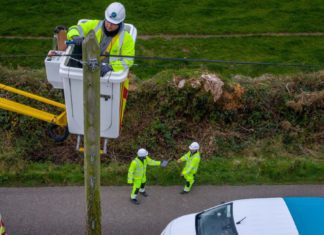Galway East TD Seán Canney has welcomed the new National Rural Plan but says that for the plan to work, investment is needed in housing, public transport and water treatment infrastructure.
Our Rural Future, published yesterday by Minister Heather Humphreys, set out an ambitious five-year plan for the development of rural Ireland, supported by 150 commitments across government.
Deputy Canney says the new policy sets out all of the things that he has been advocating for, including remote working and incentivising people to relocate to towns and villages.
But the Independent TD says that we need to see investment in sewerage and water infrastructure as well as proper public transport, including rail and bus services connecting towns and villages.
“Projects such as the Western Rail Corridor are a necessity in order to have connectivity connecting our towns and cities and we also need to tackle traffic congestion in Galway city as a matter of urgency,” said Deputy Canney.
“This will require public investment. There is great potential in the plan but in order to achieve the ambition we need to see other Departments providing the infrastructure required.
“The Department of Transport needs to provide public transport right across the country not just in cities.
“The Department of Local Government need to provide a separate budget to Irish Water for the provision of Sewerage Treatment Plants in our towns and villages if we are to release our ambition.”
The Galway TD said that remote working and blended working are fast becoming the norm, but proper housing is needed in order to attract people to relocate.
“Policies are indicative only of what can be done. To be successful the government need to provide the funding to deliver the infrastructure required,” he said.
“We have many growth centres around East Galway which are not realising their full potential due to the lack of funding for infrastructure.
“Towns and villages like Craughwell, Corofin, Abbeyknockmoy and Athenry are prime examples of growth centres where development has been stifled because of the lack of infrastructure.”












